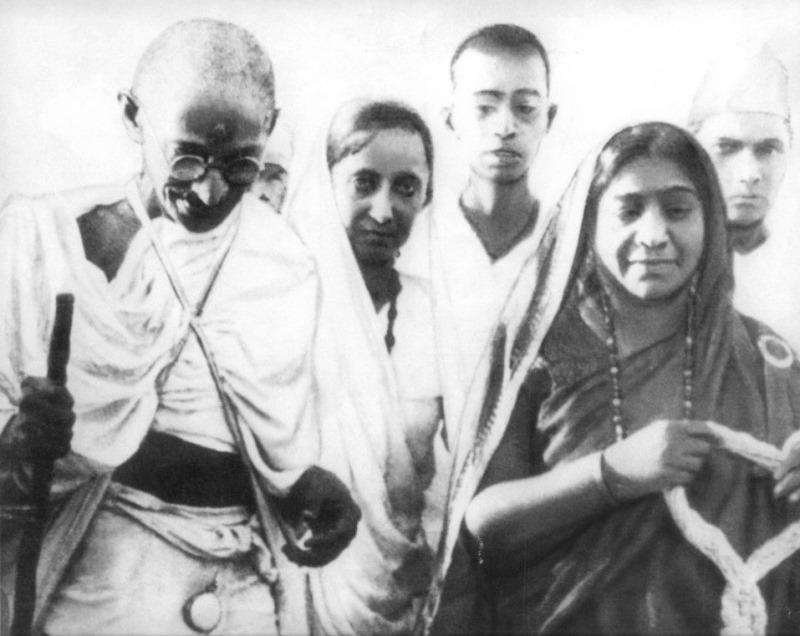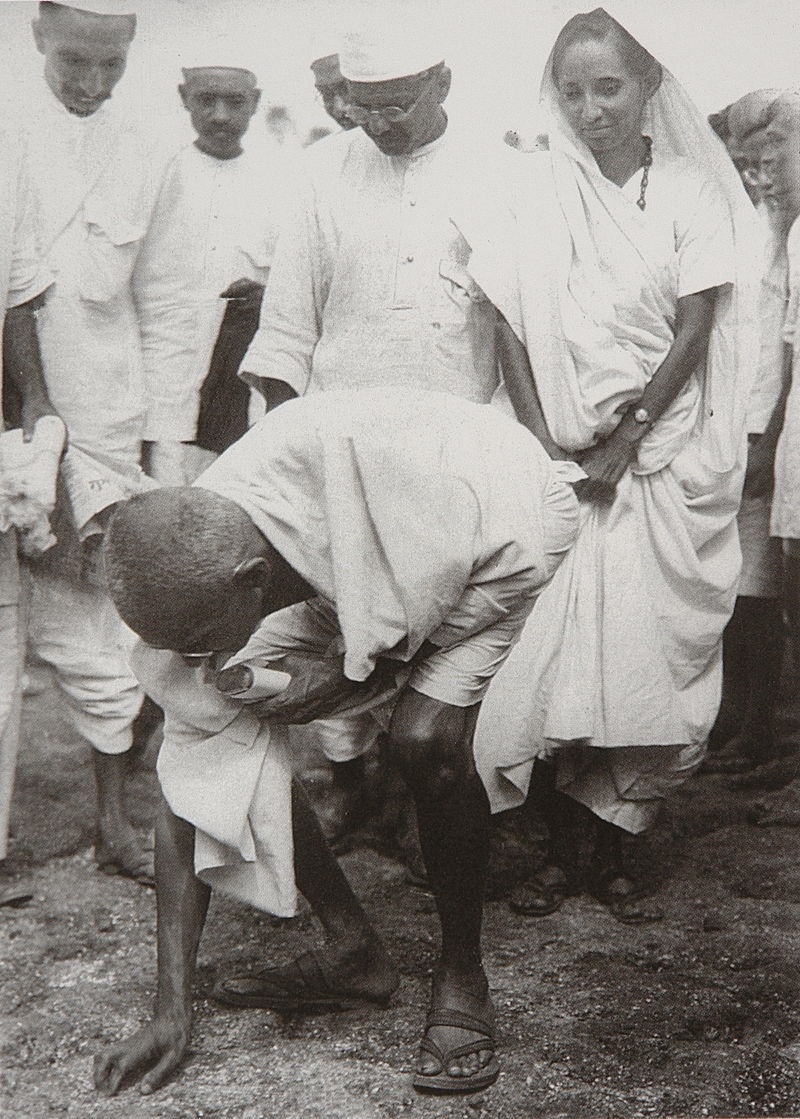MITHUBEN PETIT, WHO FOUGHT FOR INDIA’s FREEDOM WITH GANDHIJI, RENOUNCED HER COMFORTS AND LUXURIES
Petit surname has its roots in the French word ‘petit’ (meaning physically small). One of the women pioneers of India’s freedom struggle, Mithuben’s ancestors had worked as a shipping clerk and interpreter for the British East India Company, French merchants who dealt with a lively, short Parsi clerk and they called him ‘le petit Parsi’. He was great grandfather of Mithuben’s father Sir Dinshaw Meneckji Petit, a noted nationalist, mill owner, philanthropist and one of Mahatma Gandhi’s first supporters.
Mithuben Petit with Gandhiji and Sarojini Naidu
Mithuben Petit (11 April 1892-16 July 1973) led the life of sacrifice and simplicity dedicated to Gandhian principles. The young Mithuben was deeply influenced by her maternal aunt who was a follower of Gandhi, and was the Secretary of the Rashtriya Stree Sangha. Mithuben along with Kasturba and Sarojini Naidu played a major part in the Salt March. She was at the vanguard along with Kasturba beginning the march at Sabarmati.
We see her along with Mahatma Gandhi picking up a pinch of salt the location of which is generally mistaken as Dandi but it is actually Bhimrad near Surat.
Mithuben with Gandhiji during the Dandi March
More from Wikipedia
Mithuben Hormusji Petit (11 April 1892 – 16 July 1973) was one of the women pioneer Indian independence activists[1][2] who also participated in Mahatma Gandhi’s Dandi March.
Born on 11 April 1892 into an affluent Parsi family in Bombay (now Mumbai), her father was Sir Dinshaw Maneckji Petit who was a well known industrialist and a Baronet.[5][6]
Indian independence movement
The young Petit was influenced by her maternal aunt who was a follower of Gandhi, and was the Secretary of the Rashtriya Stree Sabha.[7] Petit along with Kasturba Gandhi and Sarojini Naidu played a major part in the Salt March,[8] with Kasturba Gandhi beginning the march at Sabarmati, Sarojini Naidu lifting the salt for the first time at Dandi on 6 April 1930 and Petit standing behind Mahatma Gandhi when he repeated the violation at Bhimrad on 9 April 1930. The march was one of the most important event in the Indian independence movement.[1] In the time when women took a back seat (due to the patriarchal culture at that time in India) Petit was one of the three women who played a pivotal role in the march and the civil disobedience against tax on salt.[8] Petit participated in the Bardoli Satyagraha of 1928 which was a no-tax campaign against the British Raj where she worked under the guidance of Sardar Patel.[9] Petit was instrumental in the anti-liquor movement in India and spent time with Mahatma Gandhi and explained the liquor issue with the schedule tribes in Gujarat.[10]
Social work
Petit set up an ashram in Maroli called Kasturba Vanat Shala which taught underprivileged children from families of Adivasis, Harijans and fisher folk spinning, carding, weaving, dairy farming, leather-work and a Diploma Course in Sewing, to make the women self-sufficient.[11] She also opened a hospital of the same name for the treatment of mentally ill patients.[12]
She died on 16 July 1973
Recognition
Petit received the Padma Shri in 1961 for her social work.


